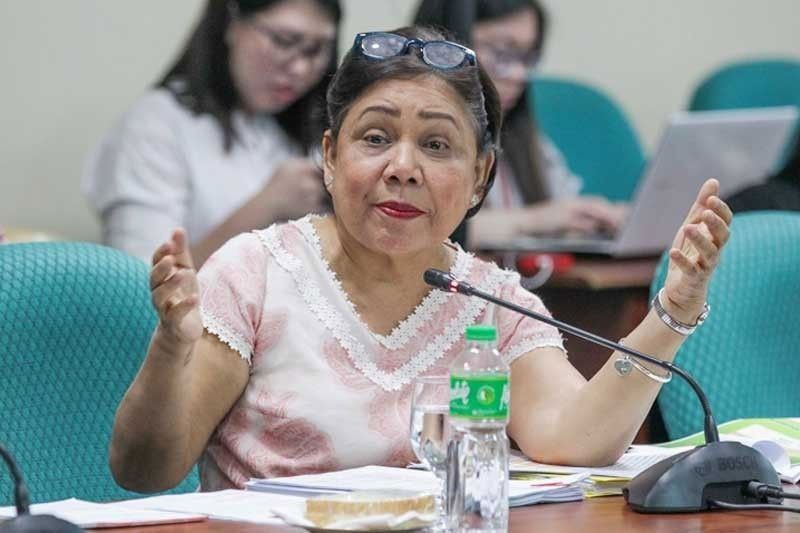Waste management, recycling a priority during pandemic — Villar

MANILA, Philippines — Waste management and recycling should not take a backseat during the pandemic but should be prioritized to prevent the spread of diseases, Sen. Cynthia Villar said yesterday.
“We all know that a clean environment is a healthy environment. Improperly disposed wastes can cause infection and contamination. So we should take proper waste disposal and management even more seriously,” said Villar, who chairs the Senate committee on environment and natural resources.
She cited the World Health Organization (WHO)’s warning that “if solid waste is not dealt with quickly, serious health risks will develop which will further demoralize the community already traumatized” by the coronavirus disease 2019 (COVID-19) pandemic.
The senator referred to the International Solid Waste Association’s advice that waste management is one of the most important sanitary barriers to prevent the spread of illnesses and diseases.
Recycling can also help manage the amount of wastes accumulated even during community quarantine, Villar said.
She said experts themselves cite that continuity of recycling efforts is important during and after the pandemic.
“Proper waste management becomes even more crucial now during quarantine or lockdown because some waste collection services are discontinued or disrupted. But the amount of wastes produced continues to increase,” Villar said.
The senator, through the Villar SIPAG foundation, has established 3,000 livelihood projects nationwide, which help process solid wastes by using them as raw materials.
These are water hyacinths for the waterlily handicraft-weaving enterprise and the handmade paper factory; waste coconut husks for the coconet-weaving enterprise and the charcoal-making factory; kitchen and garden wastes for the organic fertilizer composting facility; and plastic wastes for the waste plastic recycling factory that produces school chairs.
The foundation also facilitated the establishment of composting centers in barangays to collect kitchen and garden wastes from households to be brought to the composting facility. It now has 80 composters utilized by 80,000 households.
The senator has put up a waste plastic recycling factory in 2013 in Barangay Ilaya, Las Piñas City. The facility converts waste plastics into chairs, which is the solution to another perennial problem – lack of school chairs.
One school chair can be produced out of 20 kilos of waste plastics such as sachets and wrappers. Since 2013, the Las Piñas factory has produced over 30,000 chairs. Two more plastic factories were built in San Miguel, Iloilo and Cagayan de Oro City to cover the Visayas and Mindanao regions.
Villar noted that the Philippines, based on a University of Georgia study, ranked third, next to China and Indonesia (among 192 countries surveyed), in terms of volume of plastic waste produced by the population.
- Latest
- Trending



























